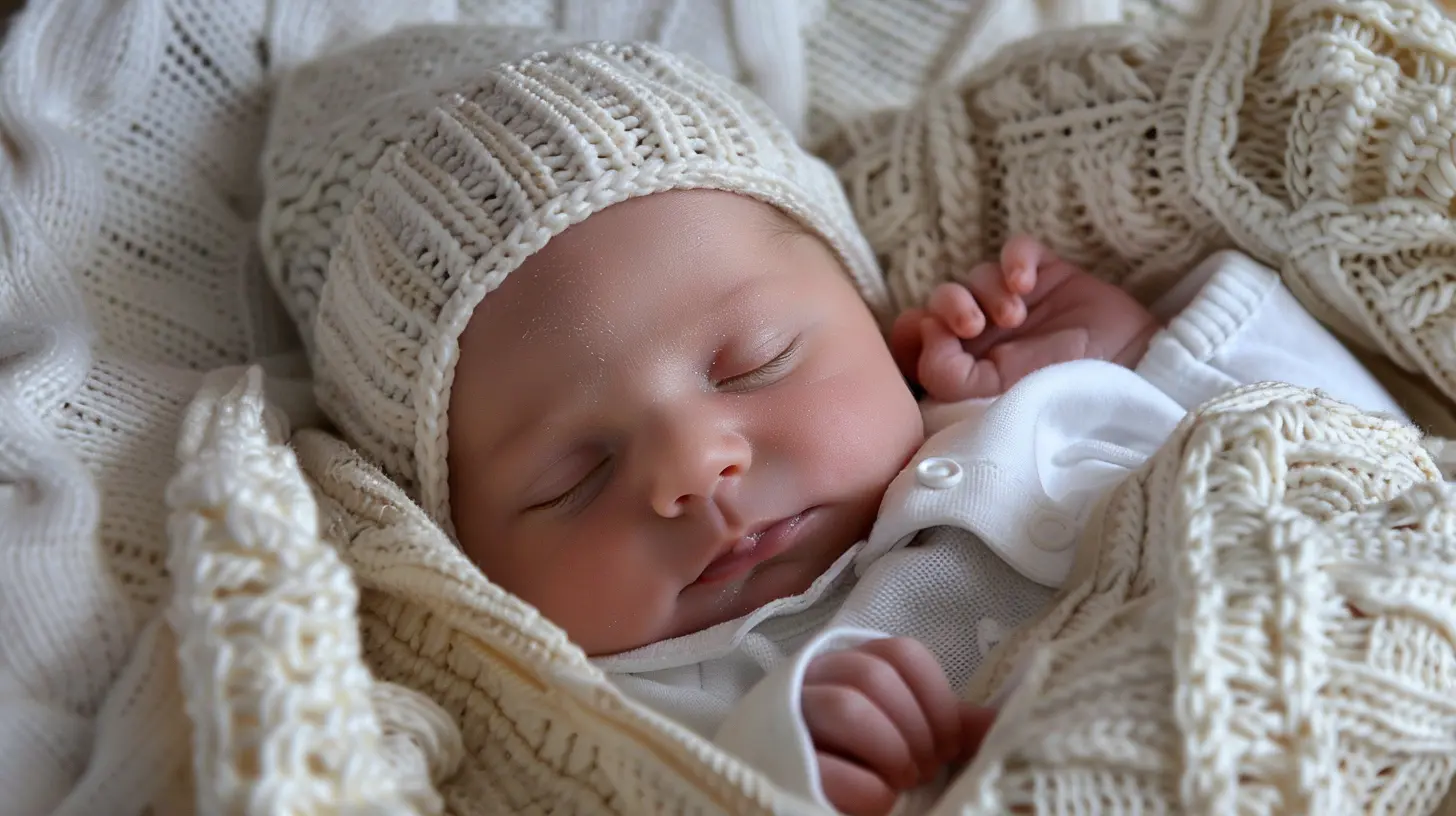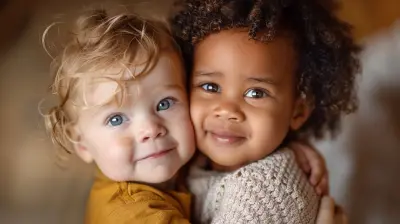15 April 2025
Ah yes, sibling rivalry—the majestic battleground where childhood gladiators compete for dominance, milk the last ounce of parental attention, and scream like they’re auditioning for a horror movie. If you've got more than one kid, you’re probably already a veteran referee, equipped with nothing but a lukewarm coffee and a deep sigh.
But here’s the kicker: much of this uncontrollable chaos actually has a scientific explanation. That’s right, before you start plotting your escape to a deserted island, let’s talk about how your little angels’ developmental stages influence their never-ending sibling warfare.

Why Do Siblings Fight? (Besides Just Keeping You on Your Toes)
Sibling rivalry exists for one simple reason: competition. Kids are hardwired to seek attention, approval, and about 95% of their mother’s remaining patience. Throw in different developmental stages, and you’ve got a recipe for Olympic-level squabbles.Each stage of a child’s growth brings unique challenges, emotions, and, let's be honest, new and improved ways to drive their siblings (and you) absolutely bonkers. Let’s break it down. 
The Toddler Stage: Tiny Dictators with Zero Boundaries
Ah, toddlers. Small in size, big on drama. If you have a toddler and an older sibling under the same roof, may the parenting gods bless your soul.Why They Fight:
- Toddlers see the world as “MINE!” They don't understand sharing, which means whatever their sibling is playing with is now their rightful property.- They seek attention like a movie star at an awards show. If their big brother or sister is getting any form of parental acknowledgment, you better believe they’re going to scream until they get their fair share.
- Their emotional regulation skills? Basically nonexistent. One moment they’re hugging, the next they’re engaged in a WWE-style takedown.
How to Handle It:
- Redirect, don’t reason. Logic doesn’t work on toddlers. Instead, distract them with something shiny or a dramatic gasp: “OH WOW, is that a COOKIE?!”- Teach emotions simply. Toddlers don’t know why they’re mad, so help them label their feelings. “You’re upset because your sister took your toy, huh? Let’s find another one!”
- Brace yourself. This phase involves a lot of tears—sometimes theirs, sometimes yours. It’s normal.

The Preschool Phase: Master Negotiators with Personal Space Issues
Preschoolers are like tiny philosophers. They ask too many questions, demand fairness, and believe they should rule the house based on absolutely nothing.Why They Fight:
- They’re obsessed with fairness. If one sibling gets a bigger piece of cake, you might as well prepare for a full-blown mutiny.- They have strong opinions but very little impulse control. One moment they’re sharing crayons, and the next, they’re hurling them across the room in protest.
- They’re still testing boundaries: Can I push my sister and still get dessert? Let’s find out!
How to Handle It:
- Use clear rules. Kids love structure. “In this house, we don’t hit, even when someone breathes too loudly.”- Encourage teamwork. Give them tasks that require cooperation, like “Let’s see if you and your brother can clean up together before I count to ten!” (Spoiler: This works 50% of the time.)
- Don’t take the bait. If they’re arguing over who gets the blue cup, remind them that water tastes the same in every color. If that doesn’t work, enjoy watching them argue about it anyway.

Elementary Schoolers: Experts in Sibling Sabotage
By the time kids hit elementary school, they’ve fine-tuned the art of conflict. They now know exactly how to push each other’s buttons with precision and ease.Why They Fight:
- Competition levels UP. School-age kids start comparing EVERYTHING—who’s smarter, faster, or owns the cooler backpack.- Attention-seeking evolves. Now it’s not just about getting noticed, but about proving who’s the favorite (probably the family pet, but let’s not tell them that).
- They develop grudges. Unlike toddlers, who forget a conflict in five minutes, elementary-aged kids remember who stole their Lego piece three months ago.
How to Handle It:
- Teach conflict resolution. Instead of just yelling “STOP FIGHTING!” (which, let’s be honest, never works), teach them to express feelings and find solutions.- Avoid playing the referee 24/7. Kids need to learn to resolve conflicts themselves—unless things escalate into full-blown war, then maybe step in.
- Praise kindness. Catch them being nice (it happens occasionally) and make a big deal about it. “Wow, you shared your snack! Is this kindness I see?”
Teenagers: The Cold War Era of Sibling Rivalry
Here’s where things get...interesting. Teenage siblings often shift from all-out war to subtle, passive-aggressive battles worthy of an Oscar.Why They Fight:
- Independence takes priority. Teens are too busy trying to be cool to openly bicker, but that doesn’t mean they won’t throw in a well-timed eye-roll or sarcastic remark.- They compare success. Who gets better grades? Who’s more popular? Who made Mom cry less last week? The competition never stops.
- Hormones = mood swings. One moment, they’re bonding over shared hatred of vegetables; the next, they’re plotting each other’s downfall.
How to Handle It:
- Give them space. Teens need independence, so let them cool off before forcing family bonding.- Don’t force them to be BFFs. Sibling relationships evolve. They might not be besties now, but that doesn’t mean they never will be.
- Encourage mutual respect. If they won’t be friends, at least enforce a “no torturing each other” policy.
Can Siblings Ever Not Fight? A Glimmer of Hope
Believe it or not, sibling rivalry isn’t all bad. In fact, it teaches kids valuable skills like negotiation, patience, and how to deal with people they don’t always like. (A skill they’ll definitely need in adulthood.)With time, as kids grow and mature, many sibling rivalries turn into lifelong friendships. And if they don’t? Well, at least they’ll eventually move out and argue via text instead of at the dinner table.
So take a deep breath, embrace the chaos, and remember: one day, they’ll be grown-ups with their own kids yelling in the background while they call you to complain about their sibling rivalry nightmares. Sweet, sweet karma.




Heather McMeekin
Sibling rivalry: nature's way of preparing us for real-world drama! While they battle for attention like tiny gladiators, remember: it’s all part of the chaotic, messy, and strangely beautiful journey called parenting. Embrace the chaos; you’re raising future negotiators and peacekeepers!
April 18, 2025 at 3:20 AM